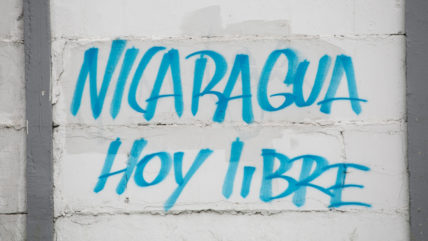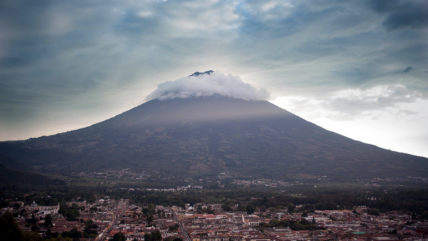
A history shaped by violence and oppression, high indebtedness and current socio-political issues represent huge challenges for politics and society. Widespread poverty is one of the biggest challenges for the country. Especially teenagers and women are threatened by social isolation; access to education and healthcare is difficult. The existence of violent gangs (maras) and the high crime rate are a huge threat for teenagers and the rest of the population.
Since it was founded in the 1980s, the CIR has been working with people and organizations from El Salvador. In the beginning, there was solidarity with the victims of the war that raged in El Salvador from 1980 to 1992. The CIR tried to support refugees and did public relations work against the warmongering of the USA and the past federal government of Germany.
Together with our partner organizations in El Salvador, we support women’s rights, the rights of children and teenagers, as well as human rights and the ecology and we want to enable people to live a life with dignity.

Since it was founded in the 1980s, the CIR has cooperated closely with Nicaragua. After the Sandinistas lost the elections in 1990, a lot of non-governmental organizations were formed in Nicaragua. They tried to build up the revolutionary goals of a free and just society.
A lot of those organizations, which support women’s rights, human rights, and children’s rights as well as a dignified economic perspective for the people, far away from exploitation and poverty, have been partners of the CIR for more than 35 years. The collaboration is far more than just financial support. The exchange of ideas and issues helps us with our public relations work in Germany, for example with our clean clothes campaign or with our support of children’s rights. On the other hand, we are committed to supporting our partners politically as well as financially so that they can participate in a change of their society.
The Nicaraguan partner organizations of the CIR work in the fields of labor laws, women’s rights, rights of children and teenagers, agriculture, human’s rights, ecology and theology.
Since 1982, Honduras has been a formally valid democracy. But it was and still is being rendered a plaything in the game of foreign super powers – especially the USA –, transnational companies, corrupted military corruption and an oligarchy which is limited to a few, very rich families.
Honduras is a dangerous country for human rights and environmental activists as well as journalists. Activists who speak up to advertise justice and democracy are frowned upon by the political elite. Our partner organizations, for example ERIC, who inform people through the independent radio station Radio Progeso about politics and who want to encourage political participation, are experienceing repression through the government.
For more than 15 years, we have been supporting seamstresses in Honduran factories which produce for the global market, by helping them demand their rights and improve their labor conditions. Since the rightful president Manuel Zelaya was forced out of office by the political elite in 2009, the human rights conditions have deteriorated extremely.
The CIR decided that the country should be pushed into the center of attention to provide a better and continuous financial and ideal support of their Honduran partner organizations. Today, in collaboration with our partner organizations, we are campaigning for labor laws, rights for LGBTI* and women as well as human rights in the mining sector.

Guatemala is one third the size of Germany and has approximately 12 million citizens. The country has a colorful past, which is the main cause of the uneven distribution of wealth that can still be found today.
The political and economic center is the country’s capital. Decisions are mainly made by the upper class. In the poor indigenous highlands of Guatemala, 23 ethical groups or Mayans, and with them their own languages and cultures, have survived. But the Mayans only have very limited access to economic resources and political participation, a heritage from colonial times. Since the peace negotiations in 1996, the prospects for Mayans have slowly been getting better.
Since it was founded in the 1980s, the CIR has been working with people and organizations form Guatemala. In times of civil war, the consideration of political human rights and of society was very important for the CIR. In the past years, the rights of Mayan women and labor laws as well as ecological aspects have been getting most of the CIR’s attention. When collaborating with Guatemalan non-governmental organizations, the independence of the partner organizations is most important for the CIR. The partner organizations are supposed to be enabled to fight for better human rights, social rights, organizational rights and the right of autonomy within their own society.
The Guatemalan partner organizations of the CIR work in the areas of labor laws, women’s rights, the rights of indigenous people, the rights of children and teenagers as well as municipal work and ecology.
In case you have any questions, feel free to ask:
Please contact our office in Muenster
cir@ci-romero.de
Phone: +49 (0) 251 674413 0